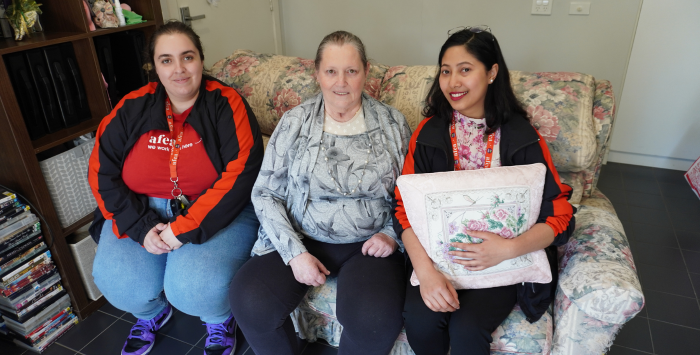Applying is simple


Fill out a planning document and meet your Local Area Coordinator or NDIS Planner

Start receiving supports and services from Afea Care Services
Am I eligible for NDIS funding?
To get funding under the NDIS you must:
- Have a permanent disability that significantly affects your ability to take part in day-to-day activities
- Be younger than 65 years of age at the time of your first NDIS plan
- Be an Australian citizen or hold a permanent visa or a Protected Special Category visa
If you are over 65 years of age, you may be eligible for a Home Care Package under My Aged Care.
Thinking about your goals
The NDIS takes a lifetime approach. It is in place to help people with a disability learn the skills to live independently and to support them with daily tasks. Setting goals is an important element of every NDIS plan, as it gives both you and the NDIA an idea of what actions to take in order to improve your future
Before applying for an NDIS plan, it is a good idea to consider what you want from your funding. Here are some questions you can ask yourself in order to come up with achievable goals that will shape your plan:
- What is important to me?
- How do I like to spend my time?
- What do I need to live an ordinary life?
- How could my health and wellbeing improve?
- What networks could I be connecting with to help me?
- What will help me be more involved in the community?
- How can I build confidence in different aspects of my life?
Preparing for your application
Preparing yourself before you apply for NDIS funding will make the application process a little easier. If you would like some assistance in applying, our experts will be happy to help
You may be asked for the following information when you apply for NDIS funding:
- Your name, age, living situation and residency / visa status and supporting evidence
- Details and evidence about your disability, including how it effects your daily life
- Any relevant reports you already have from medical practitioners and allied health professionals
- Whether you give permission for the NDIS to talk to third parties about your disability, including Centrelink, doctors or people who currently look after you
It is also a good idea to think about whether you want someone you trust involved any meetings and phone calls with the NDIA



